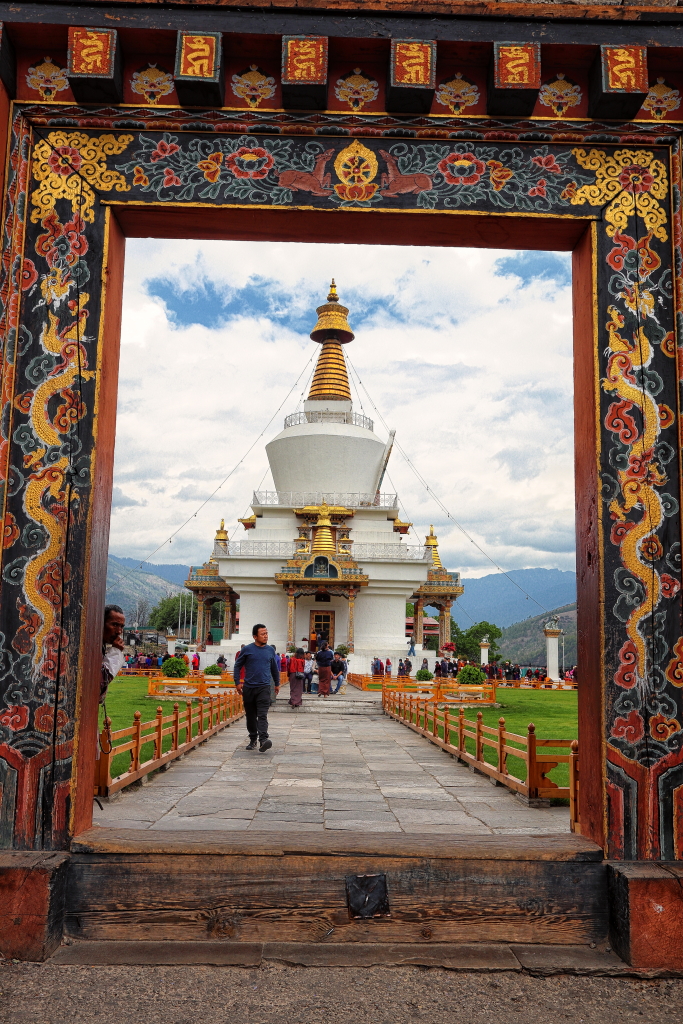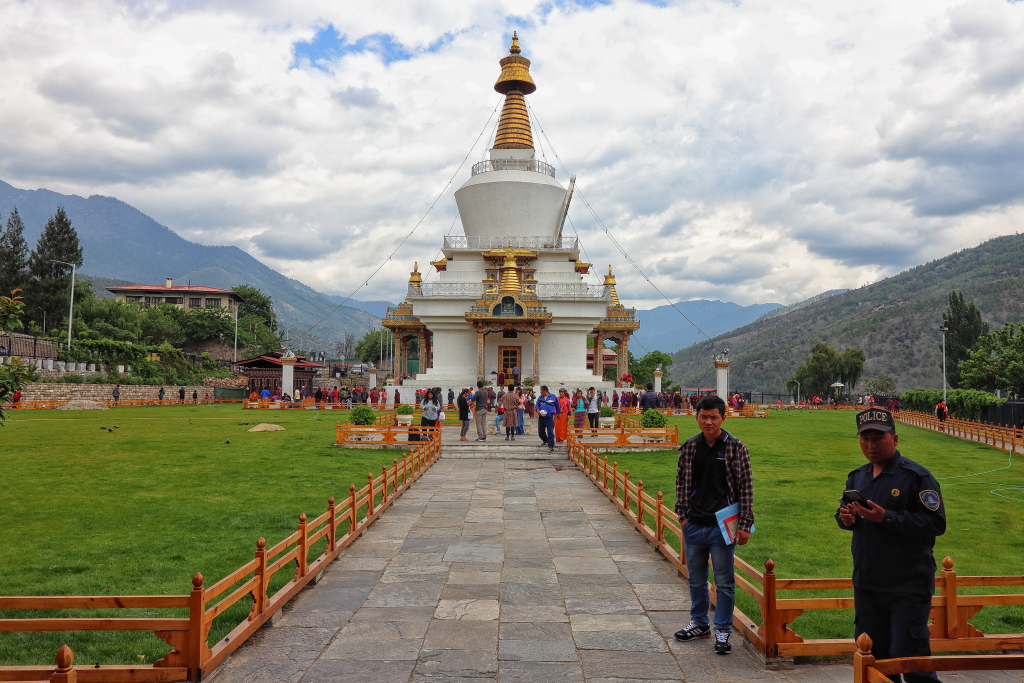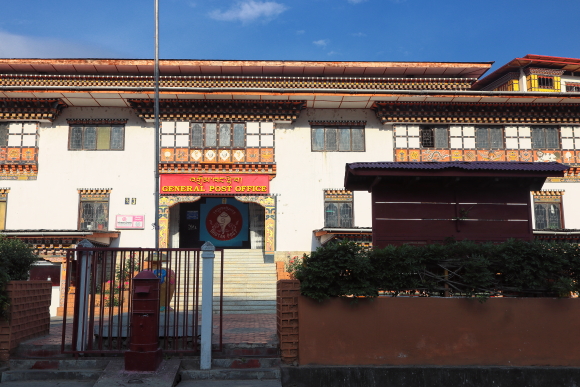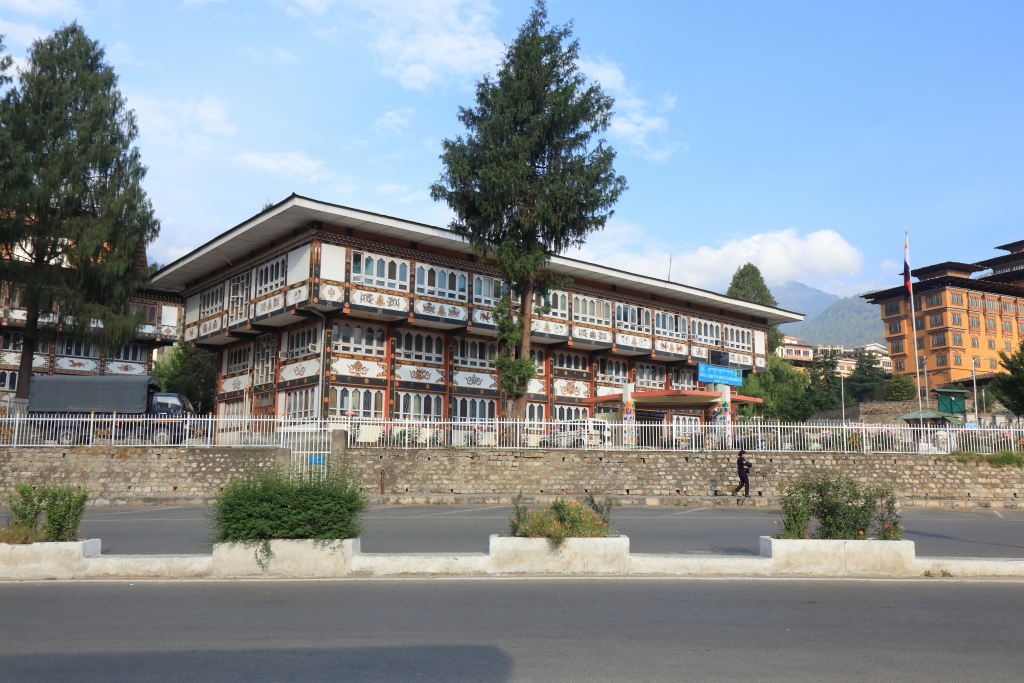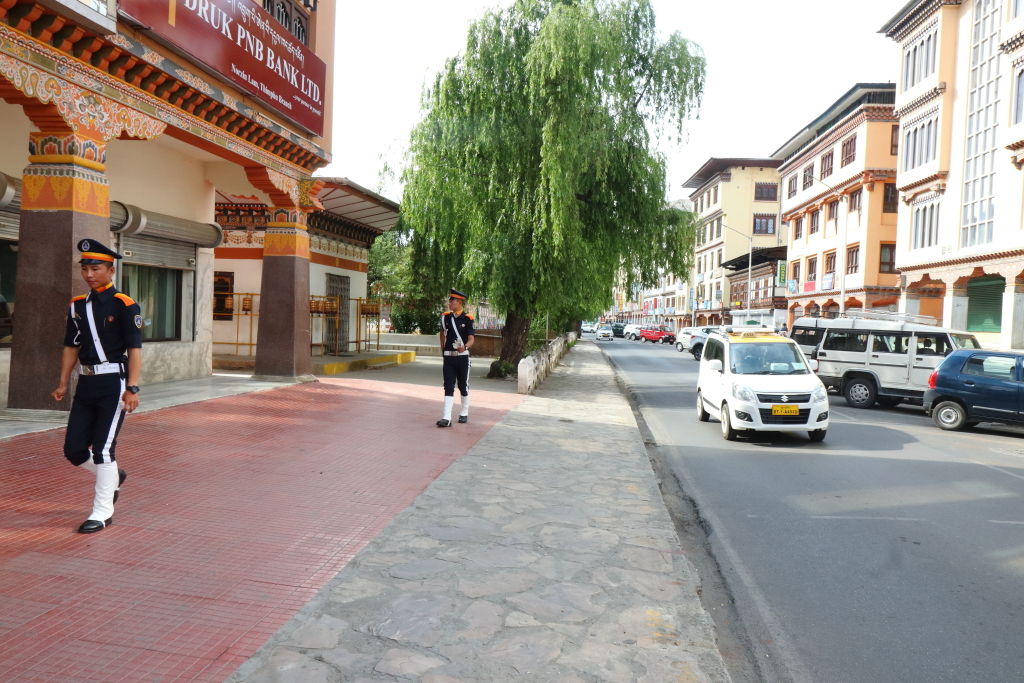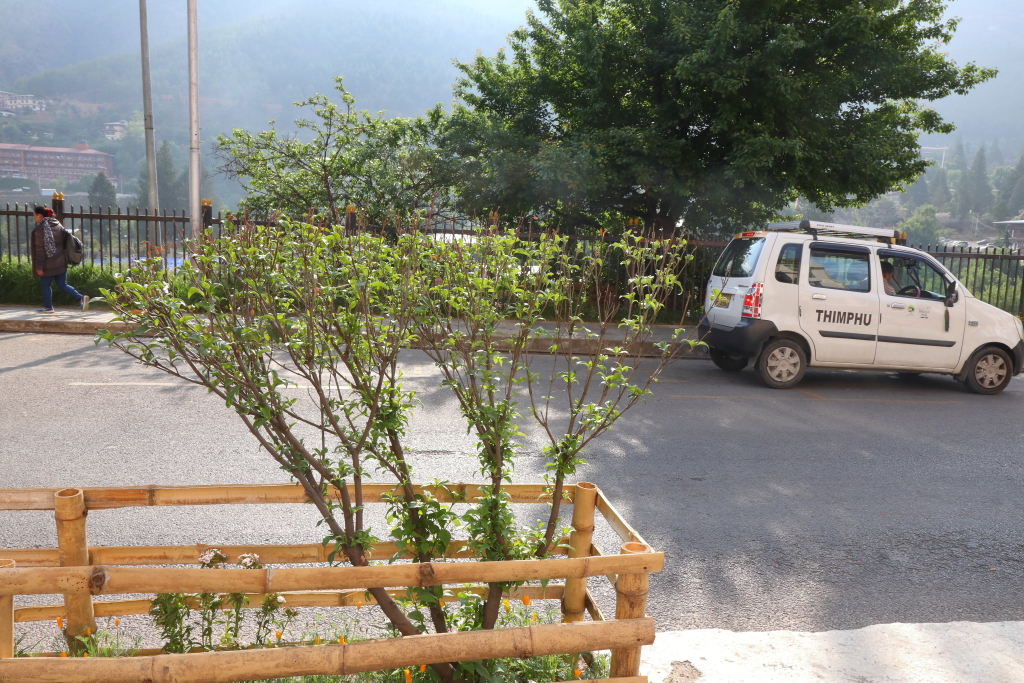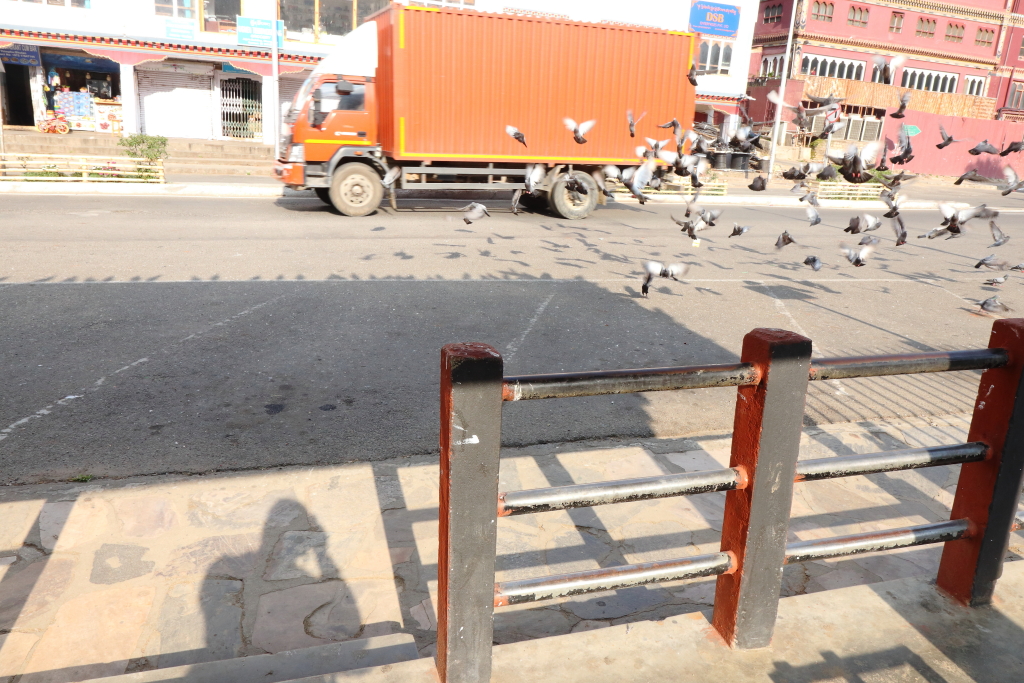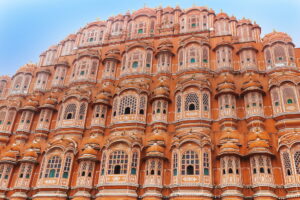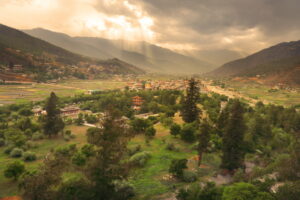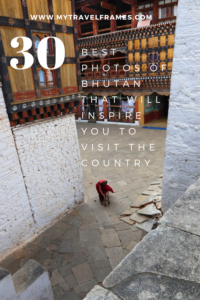Thimphu, capital of Bhutan, is the largest city in the country. It is situated in a narrow valley in the western part of the country, beside Raidak river known as Wang Chuu or Thimphu Chuu in Bhutan. Thimphu became capital of Bhutan in 1955 by replacing ancient capital Punakha. Thimphu does not have its own airport and depends on Paro airport, which is approx 54 km from Thimphu. From Phuentsholing, Thimphu is approx 150 km by road and takes 4-5 hours to reach.
Thimphu was our first destination in our maiden Bhutan trip. I booked Hotel Gakyil, which is just beside the Clock Tower. We stayed for 3 nights there. There are many places to see in Thimphu if you are travelling for the first time. Below is my list of seven things that you must see in your first visit to Thimphu.
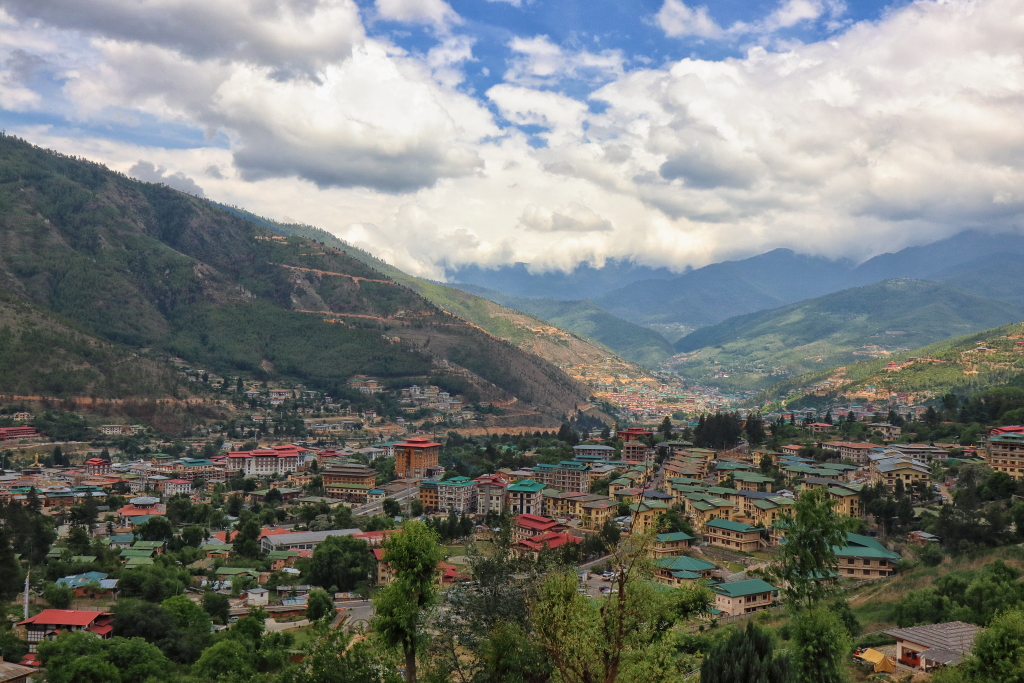
Table of Contents
Visit the mighty Tashichho Dzong
One of the popular and biggest landmarks in Thimphu, the Tashichho dzong stands tall two kilometres away from the main town. It is the main secretariat building which houses the offices of the King and the Throne Room. The central monastic body and some government ministries are also located in the dzong. It is the summer residence of the monk body, the winter being in Punakha Dzong.
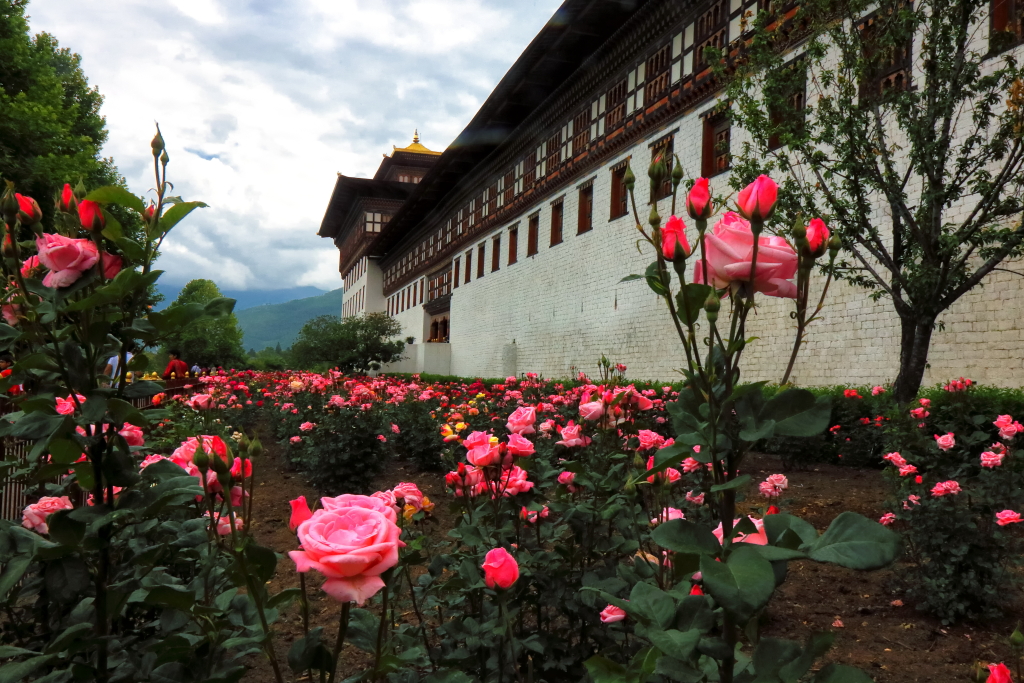
This dzong was constructed in the seventeenth century. It had been restored quite a few times since then due to damage by fire and earthquake. This grand two-storied white-washed structure welcomes tourists with a beautifully manicured rose garden surrounding it.
As we entered through the door, we had to climb a few stairs to reach the large courtyard at the centre. The temple within the courtyard depicts Buddha’s life with beautiful motifs and paintings. And the five-storied Utse is at the other end of the courtyard, opposite of this temple.
There are three-storied towers in all four corners of the dzong. All the dzong buildings are decorated with an extensive wooden framework in the top half, with golden roof shining out at the top. Residence of monks is on the northern side of the courtyard.
Thimphu Tsechu is held every year in the courtyard of Tashichho Dzong for three consecutive days.
Entry Time:
- Monday – Friday – 5:30pm – 6 pm
- Saturday – Sunday – 8 am – 6 pm
- Ticket counter closes at 4 pm
Entry Fee:
- Nu 300 for tourists
- Nu 150 for students
- No fee for children below 5 years
- Guide charge: Included with entry fee
Festival:
- Thimphu Tsechu festival is an annual event held for three consecutive days within the Tashichho Dzong courtyard.
- It usually held at the end of September.
Tips:
- Visit on the weekend. You will get plenty of time to roam around.
- Go there in the afternoon. You can witness the Flag Down Ceremony.
- Hang around after the dzong gets closed. You will love the view of Dzong when lights are on.
- Photography is allowed inside Dzong, except inside the temple complex at the courtyard.
- Be respectful to the culture and people, dress accordingly.

Be awestruck at Buddha Dordenma, one of the largest Buddha statue in the world
The Buddha Dordenma is located on a hilltop overlooking Thimphu valley. The Buddha Dordenma is the largest sitting statue of the Buddha measuring 51.5 metres in height and made of solid bronze. The statue itself houses another hundred thousand smaller statues of Buddha, all of them built of bronze and gilded in gold.
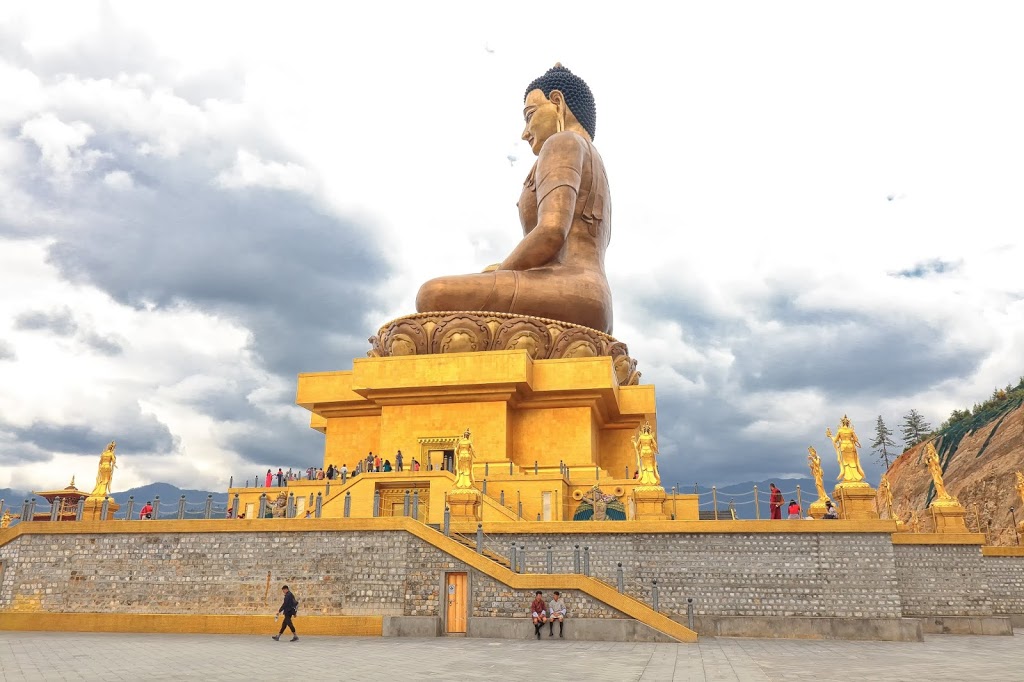
This statue was built in 2015 on the occasion of 60th birthday of the fourth king of Bhutan, Jigme Singye Wangchuck. The base of this grand statue is actually a meditation hall. This magnificent architecture is the pride of Thimphu and a sight to behold from any corner of the city.
Entry time: 9 am – 5 pm (All days)
Entry fee: No
TIps:
- The statue looks amazing at night when illuminated.
- There is a narrow trail towards the forest. Go for a walk if you have time.
- There is a small bike trail branching off near Buddha Point which goes till Pangri Zampa Monastery.
- Stop beside the road towards Buddha Point and enjoy the view of Thimphu valley.
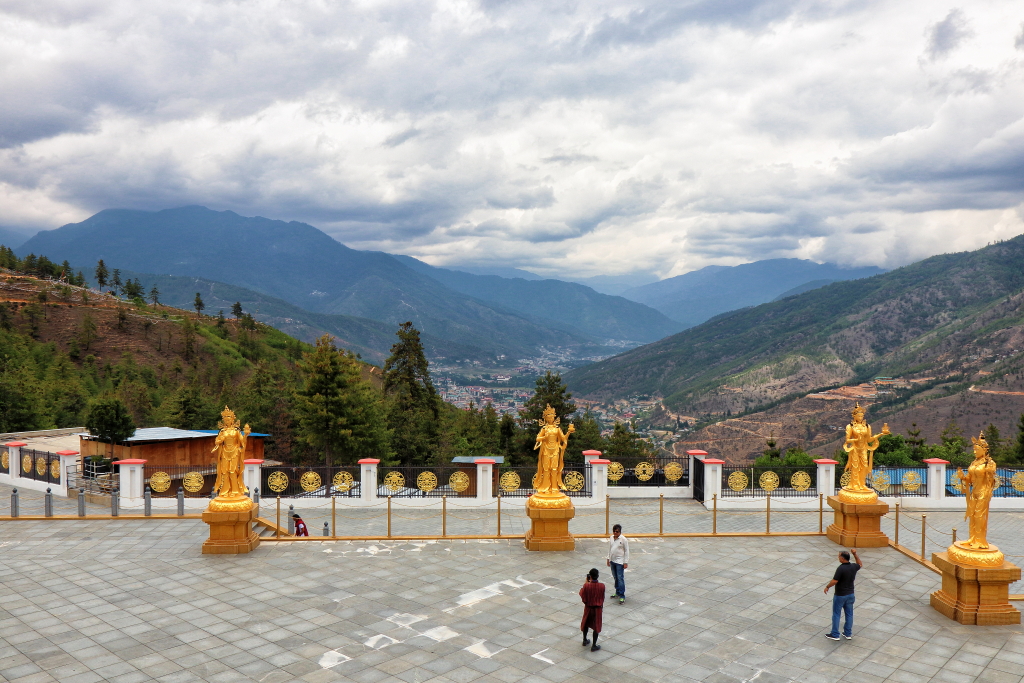
Read more: The way I had planned my first Bhutan trip
Relax at Clock Tower Square, the centre of the city
The clock tower square is located below Norzin Lam in the heart of the capital. The Clock-tower has a typical Bhutanese architectural outlook with rich Bhutanese carvings and paintings. Clock tower square is surrounded by shops, restaurants and cafes, an ideal place to do some quick shopping and dine out plans.
Go there in the evening. You might be lucky enough to see a performance by local bands. Or you can sit there and relax, let your kids play with other local kids and enjoy a cup of coffee with some delicious Tibetan momo in the stairs of Clock Tower Square.
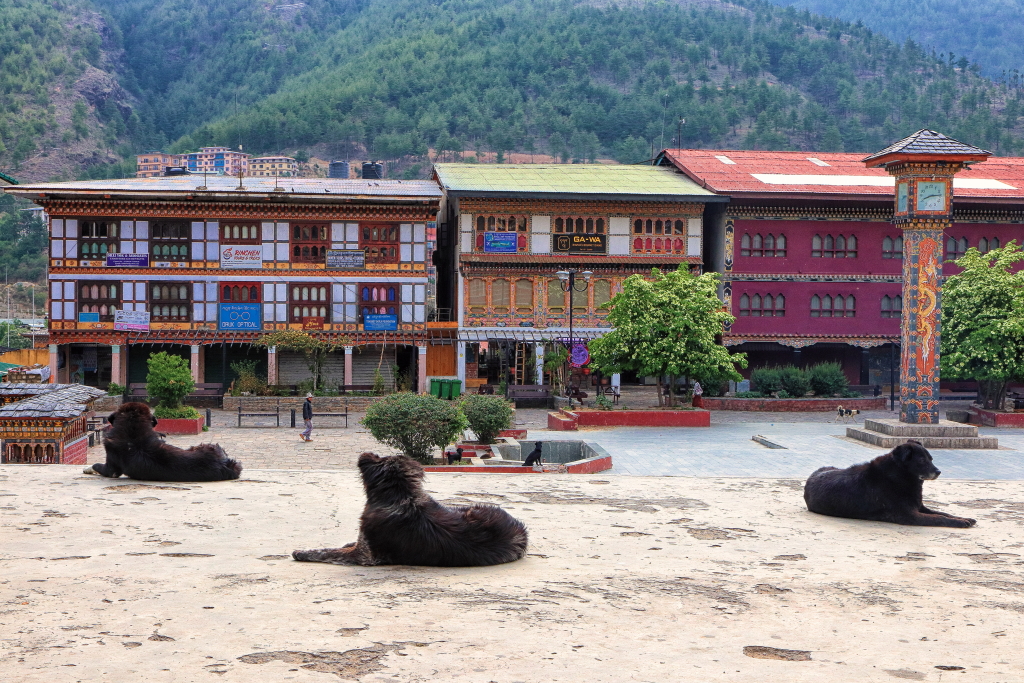
Tips:
- Book a hotel around the clock tower to feel the vibes of the city.
- Hang around with your camera early in the morning for good photographic opportunities.
- Most of the shops and restaurants close by 8 pm. So if you plan for dinner outside your hotel, keep that in mind.
- There are many good restaurants in Norzin Lam to try Bhutanese food.
- If you want to snap a photo with traffic police of Bhutan (Thimphu was said to be one of the two capital cities in the world without traffic lights), go to traffic police kiosk in Norzin Lam.
Drive to the oldest temple of Bhutan, Changangkha Lhakhang
This Lhakhang was built in the 12th century. This popular fortress-like temple is perched on a ridge above central Thimphu. Parents come here to name their children and seek the blessings from the protector deity Tamdrin.
Inside the temple, the central statue is Avalokitesvara, Buddha of compassion, in his manifestation with 11 heads, a thousand hands and eyes. This statue is made of bronze and plated with gold. View of Thimphu valley from the pilgrim path around the compound is absolutely breathtaking.
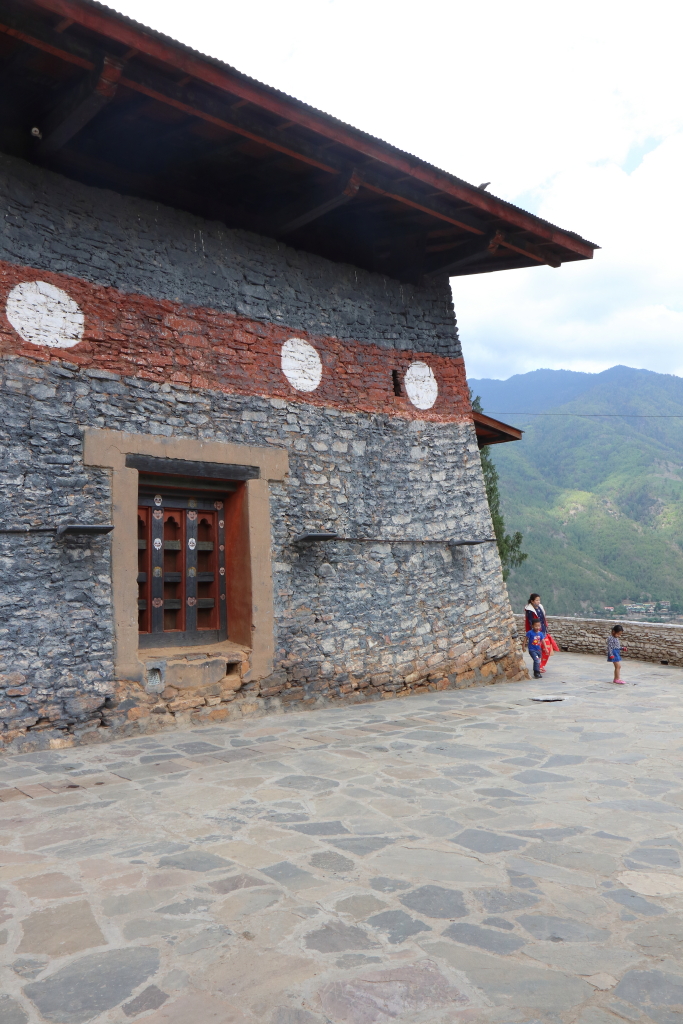
Entry time:
- All Days – early morning to sunset
Entry fee: No
Hike to Cheri / Tango Monasteries
If you want to go for a half-day hike around Thimphu, Tango and Cheri monasteries are the best places to explore. Located around 18 km from Thimphu, these two monasteries are situated on two adjacent hilltops with Thimphu Chuu flowing between those two hills.
You have to reach Dodeyna village where the road ends, and the hiking trail starts. The road goes through the beautiful villages in Bhutan, and there is another beautiful monastery midway to explore – Pangri Zampa Lhakhang. Pangri Zampa Lhakhang is the national centre for traditional astrology in Bhutan.
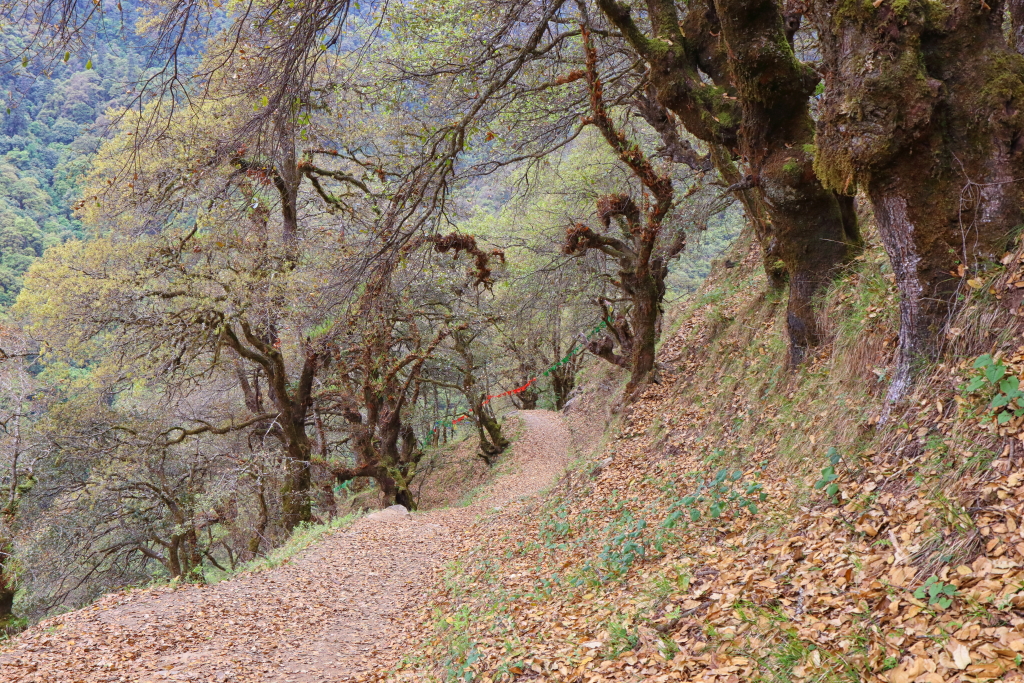
Tips:
- Carry your packed lunch if you want to hike to both monasteries. Keep your umbrellas with you.
- Spend some time beside Wang Chu river during your hike to Cheri. It is a popular picnic spot for locals.
- Visit Pangri Zampa monastery. Also, see Drolma Zhingkham Lhakhang which is adjacent to Pangri Zampa Lhakhang. Keep 1-2 hours to explore the entire monastery.
- You can visit Kabesa village en route to experience the rural life of Bhutan.
Remember The King at National Memorial Chorten
This large chorten is one of the most visited landmarks in Thimphu, and for many Bhutanese, it is the focus of daily worship. The Tibetan-style stupa was built in 1974 as a memorial to the third king, Jigme Dorji Wangchuck.
The stupa’s exterior and interior should be studied intensely as this place allows you to peek into the kingdom’s Buddhist philosophy. The exterior of the stupa is a large white structure with a golden spire crowning it. And the interior of the chorten is decorated with richly carved wings facing the four directions, and contain mandalas, statues and shrines dedicated to the third king.
Early morning is a great time to visit, as older people shuffle meditatively around the chorten, kids dressed in their smartest ghos and kiras rush out a quick kora (ritual circumambulation) on their way to school.

Framed, National Memorial Chorten 
National Memorial Chorten, Thimphu
Stop at the museums and know more about Bhutan
There are many theme-based museums in Bhutan. If you like to know more about Bhutan’s history, culture and lifestyle, you must visit these museums and enrich your knowledge.
Folk Heritage Museum
Entry time:
- Summer Timings (April to October) – Mon to Sat: 9:15 AM to 4 PM
- Winter Timings (November to March) – Mon to Fri: 9:15 AM to 4 PM; Sat: 10 AM to 4 PM
- Closed: Sundays and Public Holidays
Entry fee:
- Indian – Nu 50,
- Foreigners – Nu 200
No photography is allowed inside the museum, photos can be taken in outside premises. You must try some local food in the restaurant opposite the Folk Heritage Museum, it is one of the best places for authentic Bhutanese cuisine.
Simply Bhutan
Entry time:
- All Days 9:30 am – 5 pm
- 16th Nov – 15th Feb – 9:30 am – 4:30 pm
Entry Fee:
- Nu 300, Guide charge included in entry fee,
- To wear traditional dress – Nu 100
Photography is allowed inside. No charge for still photography, for videography Nu 6000 per hour.
Bhutan Textile Museum
Entry Time:
- Mon to Sat: 9 AM to 4 PM (Close on Sundays and Government Holidays)
Entry Fee:
- Indian – Nu 50
- Foreigners – Nu 250
- Photography not allowed
Bhutan Postal Museum
Entry Time:
- Summer Timings (April to October) : Daily 9 AM to 5 PM
- Winter Timings (November to March) : Daily 9 AM to 4.30 PM
Entry fee:
- Indian – Nu 150
- Foreigners – Nu 250
You can get your best souvenir of Bhutan right here, a personalized official Bhutan stamp with your own picture on it.

Door to an old residential building in a monastery 
Thimphu post office 
Early morning in the streets of Thimphu 
Norzin Lam, Thimphu 
Cab in Thimphu 
Me in the street of Thimphu
pin it!!
